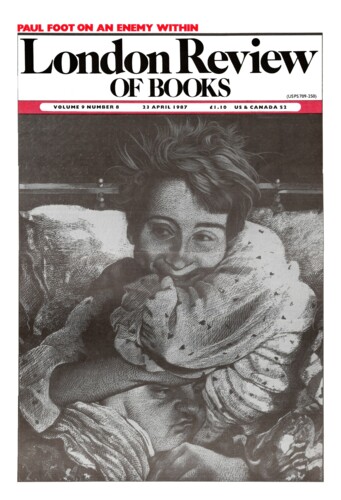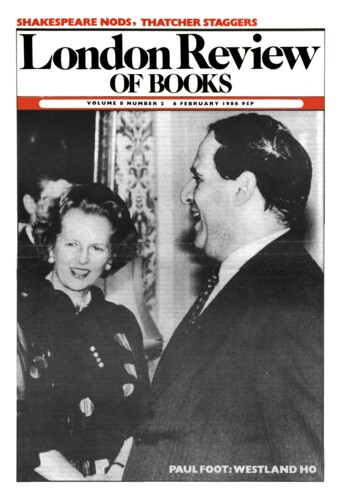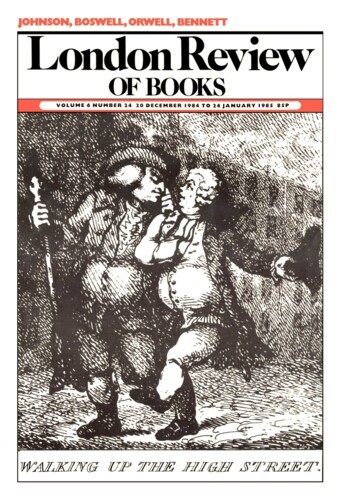Denis Donoghue
Denis Donoghue, who died in 2021, was born in Tullow, County Carlow and studied at University College Dublin, Cambridge and the Royal Academy of Music, where he excelled at Lieder singing. He taught literature at UCD for many years, before being appointed to the Henry James Chair of English and American Letters at New York University in 1980. His many books include editions of W.B. Yeats, Henry James and R.P. Blackmur, a biography of Walter Pater and critical works on subjects including literature and eloquence, voice, interpretation and metaphor. His thirty pieces for the LRB include accounts of W.H. Auden’s lack of seriousness, J.M. Synge’s ‘tedious’ love letters, many reviews of contemporary poetry and an essay on ‘the other place’ (Trinity College Dublin).
An infelicity
6 February 1986
Plain English
20 December 1984
Pieces about Denis Donoghue in the LRB
What is a pikestaff? Metaphor
Colin Burrow, 23 April 2015
Metaphors. The little devils just wriggle in everywhere. ‘Put a lid on it,’ ‘get stuck in,’ ‘shut your trap’: they’re a routine feature of vernacular...
The Devilish God: T.S. Eliot
David Wheatley, 1 November 2001
Few presences were more imposing in postwar poetry than that of T.S. Eliot, but from his eminence as the Pope of Russell Square, Eliot has now shrunk to something more like a holy ghost....
Provocation
Adam Phillips, 24 August 1995
In a contemporary review of The Renaissance in the Pall Mall Gazette, the critic Sidney Colvin wrote that ‘the book is not one for any beginner to turn to in search of...
Literary Supplements
Karl Miller, 21 March 1991
Denis Donoghue has written a seductive book. Perhaps it could be said that he has spliced together two books, one of which is more seductive than the other. One of them narrates. The other...
Green War
Patricia Craig, 19 February 1987
Wars and battles: these words, appearing prominently in the titles of two of the books under consideration, might give the impression that poetry, or criticism, or the criticism of poetry, is a...
Epireading
Claude Rawson, 4 March 1982
Denis Donoghue begins, a little self-indulgently, by reprinting six short BBC talks on ‘Words’. The excuse is that such radio talks offer a simple if incomplete model for...
Read anywhere with the London Review of Books app, available now from the App Store for Apple devices, Google Play for Android devices and Amazon for your Kindle Fire.
Sign up to our newsletter
For highlights from the latest issue, our archive and the blog, as well as news, events and exclusive promotions.



